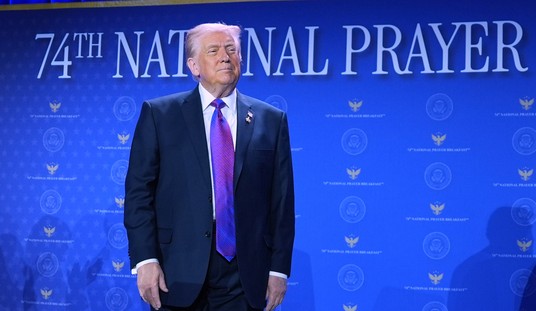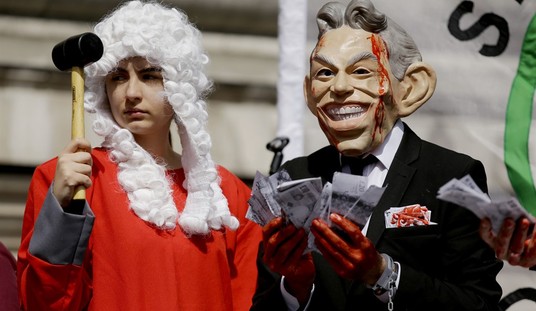Worthy of note simply for its irony, as well as its hysteria and hyperbole. Constitutional law professor Noah Feldman makes an argument that has solid theoretical grounding about the impeachment power in the Constitution. Its purpose is to prevent a president from committing “high crimes and misdemeanors” without consequence, especially when the executive controls the law-enforcement processes that would otherwise address those issues. In that theoretical sense, this statement is clearly true.
In this case, though, with the Ukraine-Gate controversy, declaring America dead without an impeachment seems a wee bit … histrionic:
Constitutional scholar Noah Feldman: "If we cannot impeach a president who abuses his office for personal advantage, we no longer live in a democracy—we live in a monarchy, or we live under a dictatorship." https://t.co/T7ONhXv599 #ImpeachmentHearings pic.twitter.com/bu9dGqsuvp
— ABC News (@ABC) December 4, 2019
Let’s start with the irony. It’s well worth noting two important facts about this case and its relation to our democracy. First, the Democrats began calling for Trump’s impeachment before he even took office. In fact, the man conducting the initial questioning of these witnesses for the House Judiciary Democrats, Norm Eisen, began tweeting his support for the “resistance” in November 2016 and discussing impeachment on Twitter the next month. It’s not much of a democracy when one party refuses to accept the results of an election loss. Hillary Clinton herself made that argument … up until the moment she lost.
Second, in case it escaped Professor Feldman’s notice, we’re scheduled to have an election next year. Voters will have the opportunity to send Trump packing if they don’t like him and don’t approve of the way he’s conducted his duties as president. Impeaching him, especially in the rush House Democrats have done with Ukraine-Gate, is actually short-circuiting our constitutional democratic processes in favor of a shadow parliamentary system by which Congress and not the voters decide who’s president. That seems to me to be just as dangerous to the constitutional order as the theoretical case Feldman advances here. In fact, Jonathan Turley made that same point explicitly earlier today.
Feldman’s hysterics far exceed the case that has been presented by House Democrats on substance as well. Feldman would be in the ballpark if an actual statutory crime could be established, or corruption firmly accounted by evidence and direct testimony. As Turley points out, House Democrats have produced nothing of the sort in this case, leaving ambiguous arguments in place while applying labels like “extortion” and “bribery” to mask their thin case:
Constitutional scholar Jonathan Turley says all past impeachments "involved established crimes."
"This would be the first impeachment in history where there would be considerable debate and in my view, not compelling evidence of the commission of a crime" https://t.co/KmbuKBc4Wi pic.twitter.com/15O77OsaOg
— ABC News (@ABC) December 4, 2019
On this point, let’s recall the issues in play in the impeachment and trial of Bill Clinton. In that case, everyone agreed that a statutory crime had been committed — perjury in a civil case involving a claim of sexual harassment that occurred before Clinton took office. The debate in that case is whether that crime rose to a level requiring impeachment and removal, even though the impetus for Clinton’s perjury was pretty clearly the need to protect his political standing as president. The House voted yes on a largely partisan vote, while the Senate voted no in a more bipartisan manner. Clinton, who had (eventually and grudgingly) admitted to committing that crime, remained in office and the Republic managed to stand. And that was at a point where Clinton no longer had to face voters for his transgressions.
Put simply, the Republic will stand if Trump doesn’t get impeached, and it will stand whether he gets re-elected or not. But if we continue down this path, we will end up with a dysfunctional system where no president can exist for long when the other party controls Congress, defaulting into a parliamentary system that disenfranchises voters from selecting the executive independently of Congress. The dangers of that constitutional erosion exceed the momentary damage done by Trump mentioning Joe Biden and Crowdstrike in a call to Volodymyr Zelensky.








Join the conversation as a VIP Member